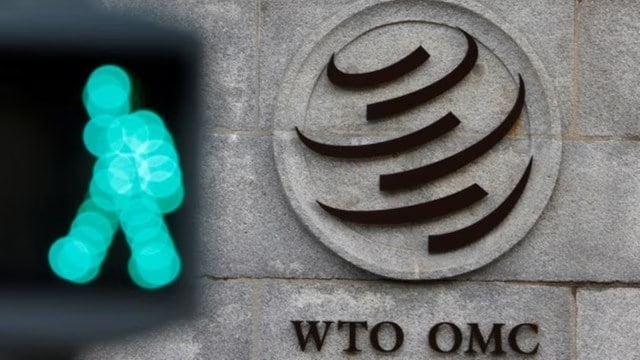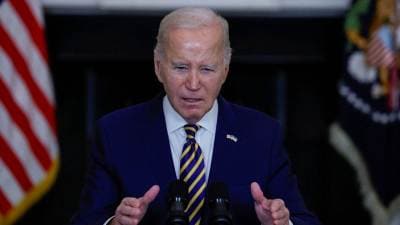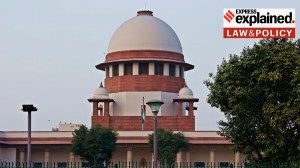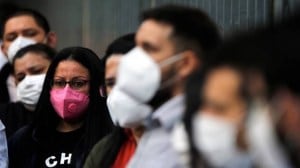- India
- International
How to restore WTO’s authority
Since the end of 2019, WTO’s crown jewel, the appellate body (AB) stands crippled because the US has single-handedly blocked the appointment of new members
 Consequently, countries have found an easy way to avoid complying with the WTO panel rulings. They appeal into the void, thereby rendering the WTO toothless. (Express File Photo)
Consequently, countries have found an easy way to avoid complying with the WTO panel rulings. They appeal into the void, thereby rendering the WTO toothless. (Express File Photo)On the negotiating agenda for the member countries of the World Trade Organisation (WTO), when they meet in Abu Dhabi for the 13th ministerial meeting, is the ongoing crisis in the dispute settlement mechanism (DSM). WTO’s DSM — its crown jewel — comprises a binding two-tiered process with a panel and an appellate body (AB).
This body, which heard appeals from the decisions rendered by WTO panels, is a permanent judicial body of seven independent members with compulsory jurisdiction over all WTO members. However, since the end of 2019, it stands crippled because the US, which lost several critical disputes before it, has single-handedly blocked the appointment of new members.
Consequently, countries have found an easy way to avoid complying with the WTO panel rulings. They appeal into the void, thereby rendering the WTO toothless.
At the 12th WTO ministerial meeting, countries resolved to create a fully functioning DSM by 2024. As part of this decision, India and several developing countries have rightly demanded the body’s restoration. As it existed from 1995 till 2019, a fully functional dispute settlement, with the checks and balances that the appellate body provides, is the best bet for the developing world. However, given the US’s keenness to de-judicialise its international trade relations, it looks unlikely that the body, as we know, will spring back to life.
In such a scenario, developing countries have three options to maintain a two-tiered DSM at the WTO. The first option is to join the European Union-led multi-party Interim Appeal Arbitration Arrangement (MPIA), which formalises the mechanism for arbitration already available under the WTO to provide the appellate review for panel reports. The MPIA’s procedure is quite like the one that the AB followed. However, there are two downsides. First, its voluntary nature means that each MPIA tribunal would be an ad hoc one. Second, though MPIA awards are binding on the parties to the dispute, unlike the AB ruling, they are not required to be adopted by all WTO members. This means that all MPIA rulings would remain ad hoc, unlike the AB, whose rulings set a body of jurisprudence that subsequent panels have frequently relied on to ensure certainty and predictability in dispute settlement.

The second option is a diluted AB. While the US has so far opposed the AB in principle, it may consider an AB with limited powers. The powers of the AB can be truncated in various ways, such as requiring it to be largely deferential to the parties to the dispute, stating that AB rulings will not have a persuasive value, etc. But a diluted AB will be antithetical to the role that WTO law expects the DSM to play: To provide security and predictability to the multilateral trading regime. It will also be inimical to the interests of countries like India. Even if the US does not like AB’s jurisprudence, the fact remains that the AB, over the years, has clarified the meaning of WTO law.
There is a third interim option, as argued by scholars Robert Howse and Wenhua Ji, which is to resurrect AB in the same form as it existed till 2019, but with one important change — countries will have the option to opt out of AB’s compulsory jurisdiction. A country opting out cannot participate in an appellate process either as a complainant or as a respondent. Thus, if the US opts out of the appellate mechanism, any country with a dispute against the US would have to settle for only a single-tier panel jurisdiction over such disputes. But there would be a functional AB for all other disputes. Critics might argue that this will change the intrinsic nature of a two-tier binding DSM and, more importantly, keep the US — one of the WTO’s most frequent litigators — outside the appellate mechanism’s purview.
But this is a price that one might have to pay to safeguard the AB in its current form. The US not joining the AB will not undermine its prominence. The non-compulsory jurisdiction of the International Court of Justice (ICJ), for example, hasn’t diminished its legitimacy and stature.
India and other developing countries should continue striving for the ideal solution: The restoration of the AB in the form it existed till 2019. However, if India is pushed to the wall to choose between the status quo and an AB for only willing countries, the latter, not the former, will be preferable.
Ranjan teaches at the South Asian University and Anuradha is a Partner at Clarus Law Associates. Views are personal
40 Years Ago
EXPRESS OPINION
More Explained
May 02: Latest News
- 01
- 02
- 03
- 04
- 05






























